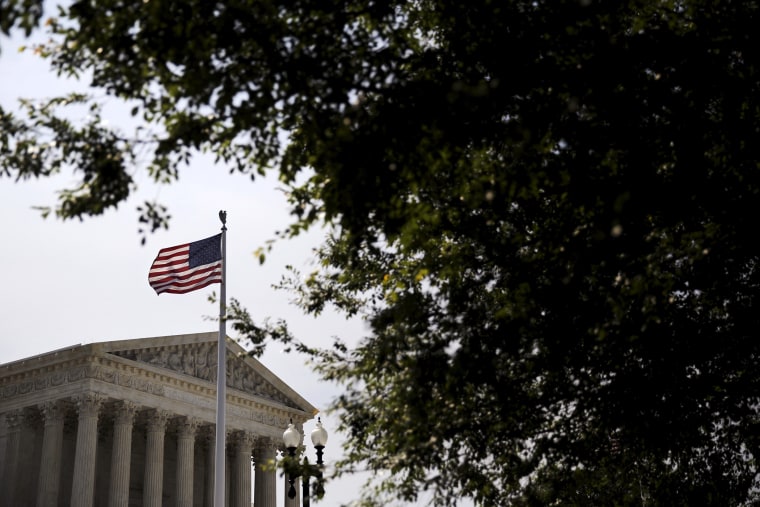The high-profile cases at the Supreme Court generally get quite a bit of attention, and for good reason. This term, some incredibly important cases either have been decided or they're about to be.
But let's not overlook some of the disputes that have been just outside the spotlight. My msnbc colleague Zack Roth
reported today, for example, on a case called
Texas Department of Housing and Community Affairs v. The Inclusive Communities Project -- which in a surprise ruling, turned back an effort to weaken the Fair Housing Act.
The Supreme Court ruled 5-4 on Thursday to reject a case that could have significantly weakened the Fair Housing Act (FHA), a landmark civil rights law. The ruling means the law will continue to cover actions in the housing sphere with a discriminatory result -- known as disparate impact -- not just intentional discrimination. "Recognition of disparate-impact claims is consistent with the FHA's central purpose," Justice Anthony Kennedy, wrote in the court's majority opinion.
The entirety of the ruling is online
here (pdf). Note, it was a 5-4 ruling, with Kennedy joined by the court's four center-left justices: Ginsburg, Breyer, Sotomayor, and Kagan.
For those who haven't followed the case, phrases like "disparate impact" might seem a little confusing, but this case was ultimately about the scope of protections against discrimination --the court was asked to consider whether someone discriminated against in housing can sue under the Fair Housing Act, even if the policy in question wasn't intended to be discriminatory.
As SCOTUSblog's Amy Howe
noted, in similar cases, federal officials have settled the case out of court rather than let the Supreme Court's conservative majority weaken the Fair Housing Act. But as it turns out, they had five votes anyway.
"[S]ince the passage of the Fair Housing Act in 1968 and against the backdrop of disparate-impact liability in nearly every jurisdiction, many cities have become more diverse," Kennedy wrote for the majority. "The FHA must play an important part in avoiding the Kerner Commission's grim prophecy that '[o]ur Nation is moving toward two societies, one black, one white -- separate and unequal.' ... The Court acknowledges the Fair Housing Act's continuing role in moving the Nation toward a more integrated society."
As for the background of this specific litigation, Roth's
msnbc report had a good summary:
The case, Texas Department of Housing and Community Affairs v. The Inclusive Community Project, Inc., arose when a Texas non-profit, The Inclusive Communities Project, claimed the state was approving tax credits for low-income housing only in heavily African-American neighborhoods of Dallas, and denying tax credits in white neighborhoods. That approach, they said, has prolonged the city's racial segregation, making it harder for poor blacks to have a shot at upward mobility. In response, Texas argued that it was just trying to comply with federal mandates governing the use of tax credits, and that, since it wasn't intentionally discriminating, it wasn't running afoul of the FHA. A district court and an appeals court -- the conservative 5th Circuit -- had both ruled that the FHA does cover disparate impact. And every other appeals court that has ruled on the question, as well as almost every other district court, had come to the same conclusion.
And as of today, a narrow majority of the Supreme Court agrees. Most observers expected the opposite outcome, but the court is occasionally unpredictable.
